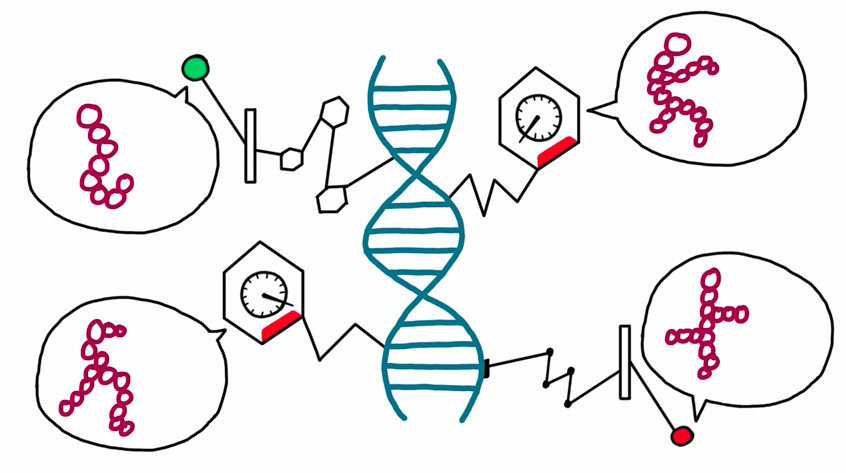Environment
How the Environment Can Impact DNA – for 14 Generations
By |

According to a recent study in the journal Science, researchers now believe life experiences and the surrounding environment can impact not only the genetic code – but the next generation’s genetic code – for as many as fourteen generations.
Since most of us are new to the study of epigenetics, a quick introductory explanation of some of the research can be viewed on MinuteEarth here. Essentially, epigenetics is the focus on how genetics can be impacted or controlled by factors other than the typical DNA sequence. This can include trait-altering information being passed onto the next generation without affecting the core genetic material. So while the actual genetic code itself isn’t changed – the way the code is “translated” by the body IS changed.
In one example, mice were introduced to a unique scent (acetophenone – a fruity smell) at the same time they received a painful electric shock. As the research continued and the experience was repeated, the mice began to fear the smell. In addition, they developed extra neurons in both their noses and the brain regions responsible for smell-processing, resulting in heightened sensitivity to the acetophenone aroma.
While that in itself isn’t shocking, the surprise came later — when the mice had babies. Amazingly, the babies (and then later the babies’ babies) also had the extra neurons and sensitivity to the smell, even though they had never smelled it themselves and were kept away from their exposed parents after birth. This suggests, according to MinuteEarth, that “it’s possible for offspring to inherit a trait their parents learned through experience. It turns out that instilling fear in the father mice did trigger genetic changes, but just not in the DNA code itself. Rather, it changed the way instructions in the genetic code were translated and carried out by the body.”
To simplify things further, ScienceAlert explains that every single living cell contains DNA, or genetic code. This code contains proteins which are produced to carry out vital processes. Epigenetic tags attached to the DNA can turn genes on or off or up or down so that the cells understand how much of which proteins to use. These tags are what can be altered by environmental or experiential factors outside the genetic code. In the mice experiment, the parents’ electric shock paired with the fruity smell caused epigenetic tags linked to neuron growth in the nose and smell-processing part of the brain to increase, which were later passed along to their children, and then to their children’s children.
Going further still, a research team led by the European Molecular Biology Organization scientists of Spain studied genetically-engineered roundworms which carry a transgene for a flourescent protein which glows when exposed to ultraviolet light. The scientists lowered and increased the temperature of containers the worms were kept in, which resulted in the minimizing of and then later stimulating of the worms’ glowing activity. When the worms were cold, they became inactive and barely glowed at all, but when they were warmed up, they glowed brightly.
However, when later moved back into the colder containers, the worms retained their bright glow, indicating the transgene remained active. It not only stayed active in the worms, either, but was actually passed onto their offspring – for seven generations – none of which had ever been placed into warmer containers themselves! Later experiments involved five generations of worms being kept at warm temperatures and then sending their offspring to colder containers. These offspring ended up retaining the transgene glow for a never-before-seen fourteen generations, resulting in the longest “passing-down of an environmentally-induced genetic change.”
Could these same impacts be measured in humans? According to one review of epigenetic inheritance, “Inherited effects in humans are difficult to measure due to the long generation times and difficulty with accurate record keeping.” But some suggest that events endured in our lives may indeed have lasting effects on our children’s and grandchildren’s development. Findings from studies involving Holocaust survivors and the Dutch famine of 1944 seem to indicate lower levels of cortisol (a stress hormone) and increased glucose intolerance in response to experiences of the past generations. Following future endeavors in this and similar research is sure to reveal fascinating developments in our understanding of epigenetics.





0 comments